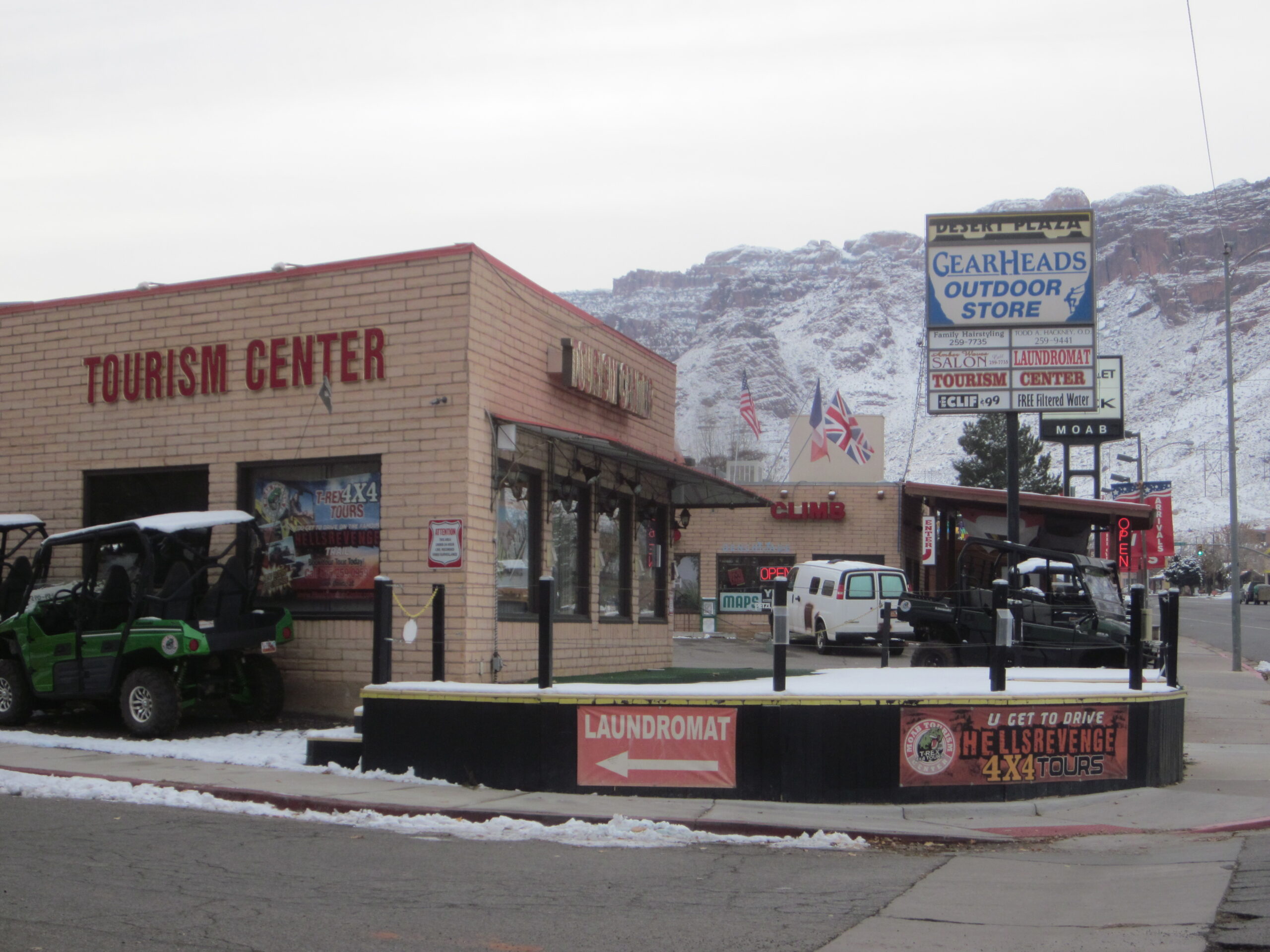Some information may be outdated.
Moab’s high season for tourism may be slowing down for this year, but the sounds of nail guns firing and reverse alarms beeping on large construction equipment remind residents that developers are betting on more visitors coming.
Two hotels are well into the construction stage. The Hoodoo Moab, which is in the final stages of construction on 100 West, is aiming to open by May 2019, and the Wingate by Wyndham, just south of town on U.S. Highway 191, is well into the framing stage of its structure.
According to Jeff Whitney, Grand County’s chief building inspector, several more overnight rental projects are in various planning stages. He referenced a condominium complex with an associated motel undergoing the final stages of zoning approval that creates around 250 overnight rental rooms. The location of the project is on U.S. Highway 191 in an open field about 1 mile north of downtown.
Another developer recently bought property south of Moab near Knut & Sons construction company, and is in the early stages of planning for overnight rental units — Whitney doesn’t yet know how many.
Another south-of-town project is Sage Creek condominiums, easily spotted by the faux red-rock landscaping structure currently being built. That project will have 108 units. The development’s website is offering the units, which will be move-in ready in July 2019, for sale, but Whitney said it’s anticipated they will become overnight rentals.
One project on the docket may affect locals in a more substantial way, if they are regular customers of the local outdoor gear retailer GearHeads. Construction on a new hotel on the business lot across the street from City Market, where GearHeads is located, is scheduled to break ground in 2019. However, the retail fixture plans to continue business from the ground floor of the hotel, and to carry on as seamlessly as possible.
Construction will take place in two phases. The Moab Tourism Center rental business across from GearHeads will move into the space next door to the outdoor shop, and the empty building will be taken down to make room for the ground floor of the hotel and the new GearHeads premises. Once GearHeads has moved over, Moab Tourism Center will move to a new location a few blocks south, the rest of the existing buildings will be torn down, and the hotel will be completed, with three stories and 38 rooms.
“It’s going to be a beautiful building,” said Doug Kennedy, co-owner of GearHeads. “Our entrance will be kind of pointing towards City Market … it’ll be a brand new building, new everything.”
Kennedy said the new building will have a similar square footage to the existing store, will carry close to the same inventory and will still offer free filtered water.
“Not much is changing in GearHeads,” he said.
Another two hotels have been proposed for the area behind Dogwood Avenue, on the south end of Moab, possibly at the lower end of the pricing scale, with more units. One of those projects is already incorporating space for workforce housing behind the hotel building, though plans are preliminary. Such foresight might become standard for all new hotels in Moab.
The City of Moab recently passed an ordinance requiring new overnight rental developers to pay a fee, or exaction, to go toward the cost of providing affordable housing for low-income workers. Approval of building permits was suspended while the city council debated the measure. Depending on what stage developers were in when the ordinance was passed, they may be subject to the new exaction fees.
“It’s being challenged, though,” Whitney said of the new law. A group of developers visited the Grand County Building Department offices to discuss their intention to bring a lawsuit against the city contesting the exaction fees.
“There’s a lot of people involved,” Whitney said. “We’re talking millions of dollars.”
Randy Day, co-founder and principal broker at Anasazi Realty, represents some of the developers who may be affected by the new ordinance. He explained their point of view regarding the exaction fees, pointing out that other sectors of the local economy, such as guiding companies and federal agencies, also contribute to the affordable housing scarcity by employing low-wage and seasonal workers.
“It’s not hotels, it’s not restaurants, it’s not anybody individually,” Day said in regard to what is causing the problem of affordable housing.
He considers it unfair that overnight rental businesses have been targeted, and is confident that the developers have strong legal precedent to support their case against the city.
The developers bringing the case have filed a complaint with the Utah Property Rights Ombudsman and are waiting to receive the resulting advisory opinion. The opinion will carry no legal weight, though it may be considered in awarding legal fees. If the ombudsman sides with the hotel developers and they then bring a lawsuit which concludes in agreement with the ombudsman’s opinion, legal fees may be awarded to the developers.
“The opinion’s coming out soon,” Day said. “I can’t wait.”
City ordinance for workforce housing challenged by developers
“There’s a lot of people involved. We’re talking millions of dollars.”
Appreciate the coverage? Help keep local news alive.
Chip in to support the Moab Sun News.





